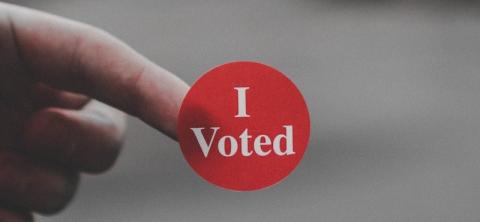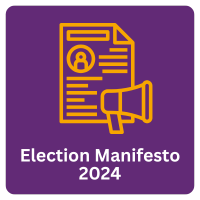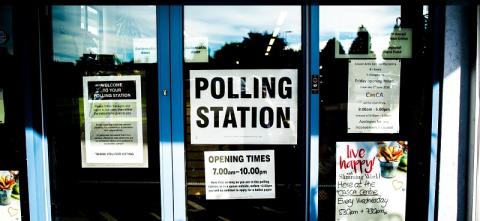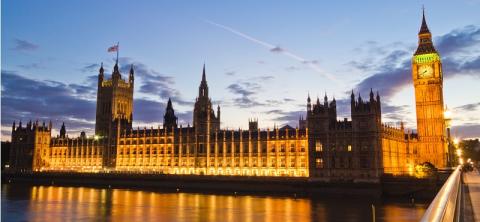
Local democracy is the self-government of cities, towns, villages and districts by democratic means—typically, but not exclusively, through elected mayors, councils and other local officials (International Institute for Democracy and Electoral Assistance, International IDEA)
This webpage aims to provide basic information and signposting that will help you to take part in Salford’s local democratic opportunities.
Election Manifesto 2024
Take a look at our Election Manifesto that we developed ahead of the 2024 General Election.

Voting in local elections
Information about upcoming local elections is available on the Salford City Council website.

Register to vote
Register to vote on the council website.
If you or someone you know is homeless you can get advice on homeless voter registration from Shelter.
Local Public Bodies – Democratic Opportunities
Salford City Council
Votes cast by the people of Salford have elected a City Mayor and put 60 councillors in place to run the affairs of the city. Find out more about the City Mayor and the councillors who represent you, including the decisions they are taking on your behalf here.
Full council meetings are now streamed live on the internet and you can access these here.
The council has adopted a constitution in accordance with the Local Government Act 2000. In accordance with regulations and the constitution, the council publishes decisions taken by the City Mayor, Deputy City Mayors, Lead Members and Officers. During the period of five working days from the publication of a decision taken by the City Mayor, Deputy City Mayors or a Lead Member, a request to 'call-in' a decision may be made. Requests for call-in are only used in exceptional circumstances and if a decision is not called-in, it becomes effective at 4pm on the fifth working day following publication. A call-in form and further information is available here.
The role of overview and scrutiny is to look at the services and issues that affect the lives of people in Salford. Overview and scrutiny need the views and experiences of local people in order to help ensure that the council and its partners deliver quality services that meet the needs of the community.
There are a number of ways to contribute to the work of scrutiny committees:
- Make suggestions of issues for scrutiny - If there are particular services or issues which you think should be looked at
- Contribute to the scrutiny committees work programmes - Overview and scrutiny committees agree a work programme each year, which includes services and issues to be reviewed.
- Take part in public question time - All the regular monthly meetings of the six scrutiny committees are held in public and you are welcome to attend as an observer. You can find dates and times of the meetings on the committee pages.
Further information on scrutiny is available here.
Local councillors are elected by the community to decide how the council should carry out its various activities. They represent public interest as well as individuals living within the ward in which the councillor has been elected to serve a term of office. They have regular contact with the general public through council meetings, telephone calls or surgeries. Surgeries provide an opportunity for any ward resident to go and talk their councillor face to face and these take place on a regular basis. Councillors are not paid a salary for their work, but they do receive allowances. By law, all members of the Council are required to complete a declaration of interest form, the details of which are published annually. Find out more about your councillor including how to contact them here.
Greater Manchester Integrated Care Partnership
Greater Manchester Integrated Care Partnership (Greater Manchester ICP) brings together all health and social care partners across Greater Manchester and wider public sector and community organisations to improve the health and wellbeing of the 2.8 million people who live in Greater Manchester.
The way in which health and care services are organised in GM changed on 1st July 2022, to meet the new requirements under the Health and Care Act 2022. Building on the work of the Greater Manchester Health and Social Care Partnership (GMHSCP), the Greater Manchester ICP was established.

Your Member of Parliament
Members of Parliament (MP) are elected to the House of Commons at a Parliamentary General Election. A general election has to take place within five years of the last general election, which was held on 8 June 2017. However, the government may call a general election at any time during that five year period.
Salford has two constituencies - Worsley and Eccles South and Salford and Eccles. Both seats are currently held by Labour. Please note: Kersal and Broughton wards will come under the jurisdiction of Manchester City Council in Blackley and Broughton Borough Constituency, which is also currently held by Labour. Find out more about your MP, including how to contact them here.
The Mayor of Greater Manchester
Andy Burnham was elected as Mayor of Greater Manchester in May 2017. Accountable to and representing the people of all 10 boroughs in Greater Manchester, Andy steers the work of Greater Manchester’s Combined Authority, leading on issues such as the economy, transport, police and fire services.
Mayor's Question Time - Each month, Andy hosts a question time event, giving local people the opportunity to quiz the mayor about a range of local issues. Find out more about the GM Mayor and Question Time here.